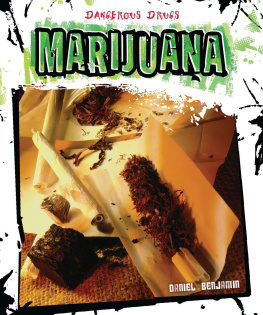Penguin supports copyright. Copyright fuels creativity, encourages diverse voices, promotes free speech, and creates a vibrant culture. Thank you for buying an authorized edition of this book and for complying with copyright laws by not reproducing, scanning, or distributing any part of it in any form without permission. You are supporting writers and allowing Penguin to continue to publish books for every reader.
Neither the publisher nor the author is engaged in rendering professional advice or services to the individual reader. The ideas, procedures, and suggestions contained in this book are not intended as a substitute for consulting with your physician. All matters regarding your health require medical supervision. Neither the author nor the publisher shall be liable or responsible for any loss or damage allegedly arising from any information or suggestion in this book.
For Caleb.
I hope that he found the relief he was searching for.
1
The Blacksmith and the Boxer
The mobile home has traveled many hard miles. Like old luggage, its tan exterior is scuffed and faded and marred by countless dents. In the gusty wind blowing across the surrounding field on the outskirts of Denver, its frame rocks restlessly on bald tires, making it seem alive. The windows are obscured by curtains. A poster on the door shows the outline of a human-shaped shooting target, pocked with bullet holes. The caption below it reads Theres nothing in here worth dying for.
I turn to the man standing next to me. Nathan Pollack is in his seventies, with snow-white hair and a whorled white beard that ends in a sharp point at his chin. His black beret and rumpled tweed sport coat make him look like he could be a professor at a small liberal arts college. He is in fact a hospice doctor, like me, and hes about to introduce me to a patient whose story I very much want to hear.
I knock, and the door opens a few inches, revealing the head of an enormous dog with bulbous eyes and small, clipped ears. His intimidation potential is elevated a bit by the fact that his teeth are at the level of my throat.
It turns out that the dogall eighty pounds of himjust wants someone to scratch behind his ears. Still, I let Pollack go in first.
Inside, the mobile home smells of stale marijuana smoke, dog, old socks, and compost. The interior is dark despite the bright winter day outside. Several heavy quilts cover the windows as insulation against the biting wind, and another covers the doorway that leads to the cab in front. The cozy womblike space is crammed with a bed, two small chairs, and a tiny kitchen area. Theres faded wallpaper and a mock-Tudor ceiling constructed of stucco interspersed with faux wood beams. Its oddly homey.
As my eyes adjust to the dark, I get a good look at the man Pollack has brought me to meet. Caleb is in his forties, lean and wiry. His neatly trimmed mustache is at odds with brown hair thats long and boyishly unkempt. Hes sitting cross-legged on his bed, warmly dressed in a thermal long-sleeved shirt, a flannel shirt, jeans, and well-worn athletic socks.
Calebs hands are shaking, and I recognize the resting tremor of Parkinsons disease. He tells me that he got that diagnosis several years ago and thinks the unusually early onset is probably a result of his work as a blacksmith and a welder. You inhale every heavy metal known to man, he says. No surprise that they do all kinds of damage to your brain.
I ask him his dogs name, and Calebs face contorts into what might pass for a smile.
Rocky.
Of course. What else would you call a boxer? I laugh, and Caleb does, too. He clutches his left side in obvious pain. Then that passes, and he starts to tell me the story I came to hear.
Two years ago, he was diagnosed with rectal cancer. He received what he described as aggressive treatment in Wisconsin. Some days I didnt think I could take any more, he says. But then Id go by the childrens hospital and Id watch those kids playing outside and Id think, If they can handle this, then I can, too.
His doctors told him that treatment could prolong his life, but wouldnt cure him. So he suffered through as much treatment as he could stand, and then he drove west to Colorado where he knew hed be able to get marijuana legally to treat his pain and control his nausea.
Along the way, he also discovered that marijuana didnt only relieve those symptoms.
It also keeps me from being an asshole. He pauses. Well, too much of an asshole, anyway. It sort of blunts the sharp edges. Im not so pissed off all the time about everythingat everyone.
Having cancer sucks, he admits. But when youve got your red cardthats Colorados medical marijuana carddying sucks a little less.
It turned out, however, that getting marijuana wasnt so easy.
As soon as he parked his mobile home in this suburb outside of Denver, Caleb found Pollacks hospice, which promised free marijuana to its patients. Thats essential, because Caleb lives on about $600 a month. But Pollacks hospice had stopped providing marijuana because the management didnt want to run afoul of federal laws that still classify marijuana as an illegal substance. So once he was in Denver, Caleb wasnt able to get marijuana from Pollacks hospice, and he couldnt afford to buy his own.
As Caleb tells his story, he drops the courtly politeness with which hed greeted me a few minutes ago, and his language becomes increasingly laced with profanity. He goes on to say how much he depends on the marijuana he smokes. But he cant afford it.
Oh, theres plenty of places to buy. Thats the hell of it. Sure its legal, but... He rubs his thumb and forefinger together in the universal sign for money. You have to be able to pay.
I ask him if hed found another hospice that could give him marijuana, and he grins.
No, I didnt really look. He winks at Pollack. Ill complain, sure. Im not shy. Especially when Im pissed off. But these are good folks. They take good care of me.
Hes stayed with Pollacks hospice, and hes gotten marijuana from so-called angels in the community who make donations directly to him. That keeps the hospice out of trouble, which is fine with Caleb.
I wouldnt want anybody going to jail for me.
Besides, he has a plan.
Im growing my own. See? He points.
To my left, at the rear of the mobile home, theres a grow light suspended over a plastic tub. The light sways gently in the wind, casting undulating shadows of what looks like about thirty immature marijuana plants. A few are about eighteen inches tall and look like they might start budding in a couple of weeks. But most are no more than a couple of inches high.
Caleb admits that those smaller plants were the result of an accident. Literally. He went to pick up plants from someone who was moving and wanted to give them a good home. But problems ensued.
Im not the best driver, you know?
I look back at the psychoactive garden. I nod.
Caleb is a little vague about details, but apparently while he was driving, the microwave fell off its shelf and several plants lost their lives. He salvaged what he could by taking cuttings and creating clones, which are the Lilliputian plants that take up most of his little greenhouse.








